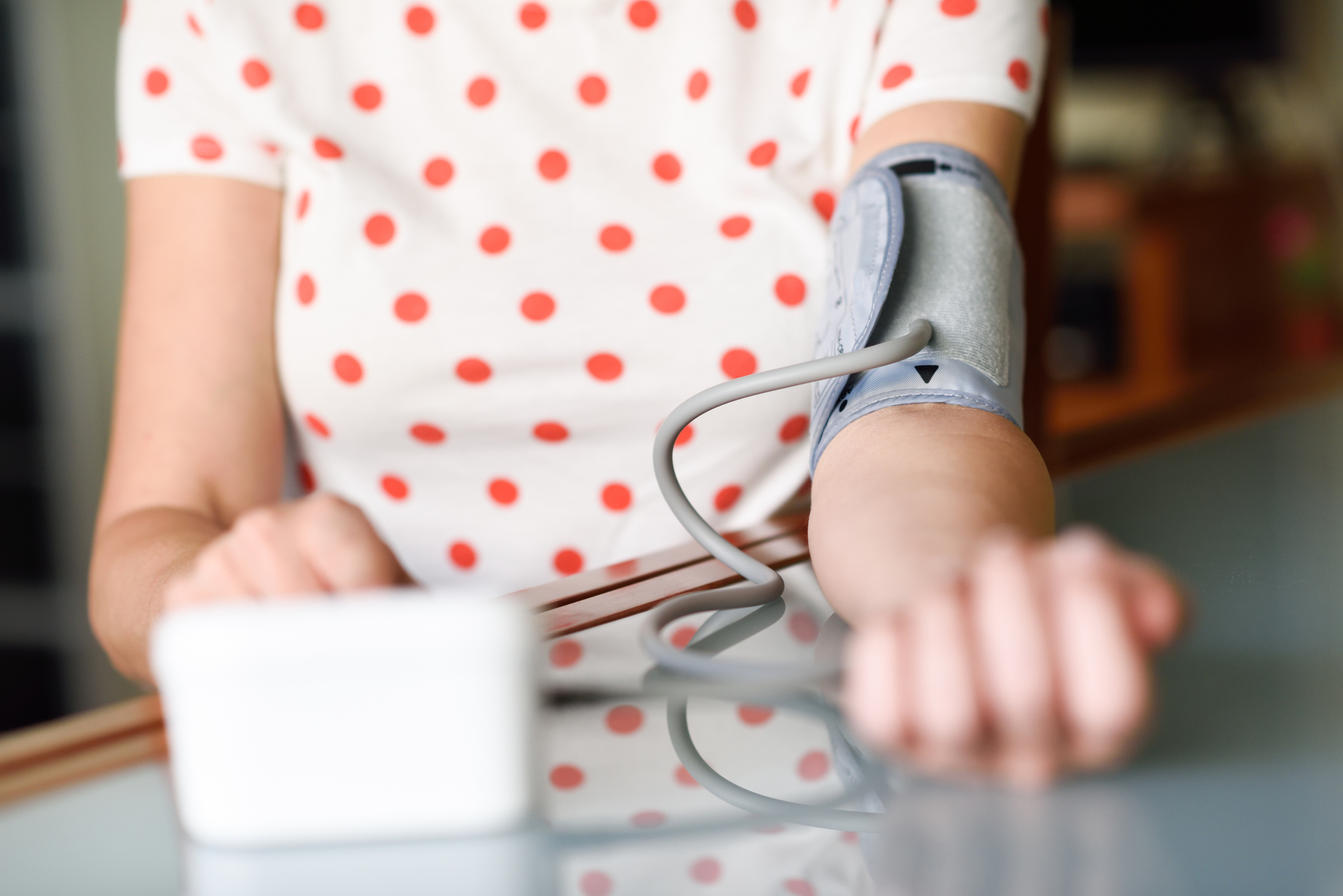Get Easy Health Digest™ in your inbox and don’t miss a thing when you subscribe today. Plus, get the free bonus report, Mother Nature’s Tips, Tricks and Remedies for Cholesterol, Blood Pressure & Blood Sugar as my way of saying welcome to the community!
This adrenal hormone may be why you can’t get your BP down

You may already know the story of why I became a health researcher… but if you don’t, I think it’s important that I share it with you now.
My family history of cardiovascular disease is the catalyst that put me on a life-changing journey.
My mom, the center of my world, had a stroke that left her blind in one eye at just 47 years old.
I lost my grandmother and two great uncles to heart attacks.
My favorite aunt, Carol, brags about how she’s avoided the family curse… but really she’s just on a boatload of prescription blood pressure meds… they don’t cure a darn thing, they just delay the inevitable.
Because of this, I’ve not only felt a driving need to keep my own heart, blood vessels and blood pressure healthy, but also to help others (my children included) do the same… naturally.
And while I’ve researched numerous conditions over the years, blood pressure and cardiovascular health are still the nearest and dearest to my… wait for it… heart.
So when I read a new study that found that doctors might have been misdiagnosing the cause of patients’ high blood pressure for years, I knew that I had to share it with you.
The hormone-blood pressure connection
A study, conducted by researchers at Brigham and Women’s Hospital in Boston, proved that a condition that doctors long considered to be an uncommon cause of high blood pressure is actually quite common.
It’s called primary aldosteronism.
It occurs when your adrenal glands (the little glands that sit on top of your kidneys) overproduce the hormone aldosterone.
This overproduction causes your body to retain sodium and lose potassium, which spurs a spike in your blood pressure — a spike that doesn’t necessarily decrease even if you take blood pressure medication.
So how many patients’ high blood pressure is due to primary aldosteronism?
The study found that a whopping 22 percent of patients with more severe high blood pressure had primary aldosteronism.
And the same was true of almost 16 percent of patients with milder, stage 1 high blood pressure…
Not so uncommon after all, right?
Why then have doctors always proclaimed primary aldosteronism to be an uncommon source of blood pressure problems?
The researchers say it’s because doctors are simply not testing for it…
Docs generally only look for it if you have what’s known as resistant hypertension, where your blood pressure doesn’t respond to medication.
And they say that even if your doctor does order the test, the likelihood your results will be accurate are slim because the test is generally done via a single blood draw, taken in the morning…
But aldosterone levels, like those of other hormones, fluctuate over the course of a day, so that single blood measurement doesn’t capture a true picture of your aldosterone secretion.
Because of these issues, doctors have been ignoring a condition that can be easily treated with healthy lifestyle changes and aldosterone-blocking medications.
If you’re living with high blood pressure, and especially if medication isn’t helping, it might be time to talk with your doctor about being accurately tested for primary aldosteronism.
In addition to knowing the true cause behind your blood pressure problems, making immediate lifestyle changes can help to keep your blood pressure healthy. Recommended changes include:
#1 — Eat less salt
According to preventive cardiologist Luke Laffin, M.D. of the Cleveland Clinic, one of the best things you can do to reduce your blood pressure is to eat less salt.
“Studies have shown that a low-sodium diet has the same effect as one and a half to two blood pressure medications,” Laffin says.
He recommends lowering your sodium intake by at least 1,000 mg per day.
#2 — Add potassium
Since highly processed, fast food diets tend to reduce your body’s potassium levels, Dr. Laffin also recommends eating more potassium-rich foods like tomatoes and bananas.
Although, if you have kidney disease, you do have to watch how much potassium you consume since it’s hard for your kidneys to excrete.
#3 — Go DASH
The Dietary Approaches to Stop Hypertension (DASH) diet is the most recommended for blood pressure control and a great way to get heart healthy.
The diet puts a focus on fruits, vegetables, whole grains and low-fat dairy so it’s easy to see why it could help you keep your blood pressure out of the red zone.
#4 — Lose weight
According to the Cleveland Clinic, for every 2.2 pounds you lose, you can expect a 1 mm Hg drop in your blood pressure. So, as the scale goes down so too does your blood pressure and heart risk.
#5 — Get physical
Regular exercise is also vital to blood pressure health, helping your blood vessels to expand and contract and increasing blood flow. In fact, 150 minutes of aerobic exercise per week could help you lower your pressure by 5-8 mm Hg.
#6 — Say Y-E-S to N-O
Nitric oxide (N-O) is the compound in your blood vessel lining that helps them dilate so your blood flows smoothly. Unfortunately, as you age, your cells make less of this vasodilator, forcing your heart to pump harder and harder to compensate for those narrowed vessels.
Luckily, there’s an easy way to up your nitric oxide levels… simply add more beets to your diet. They are a rich source of the nitrates your body needs to create precious N-O.












